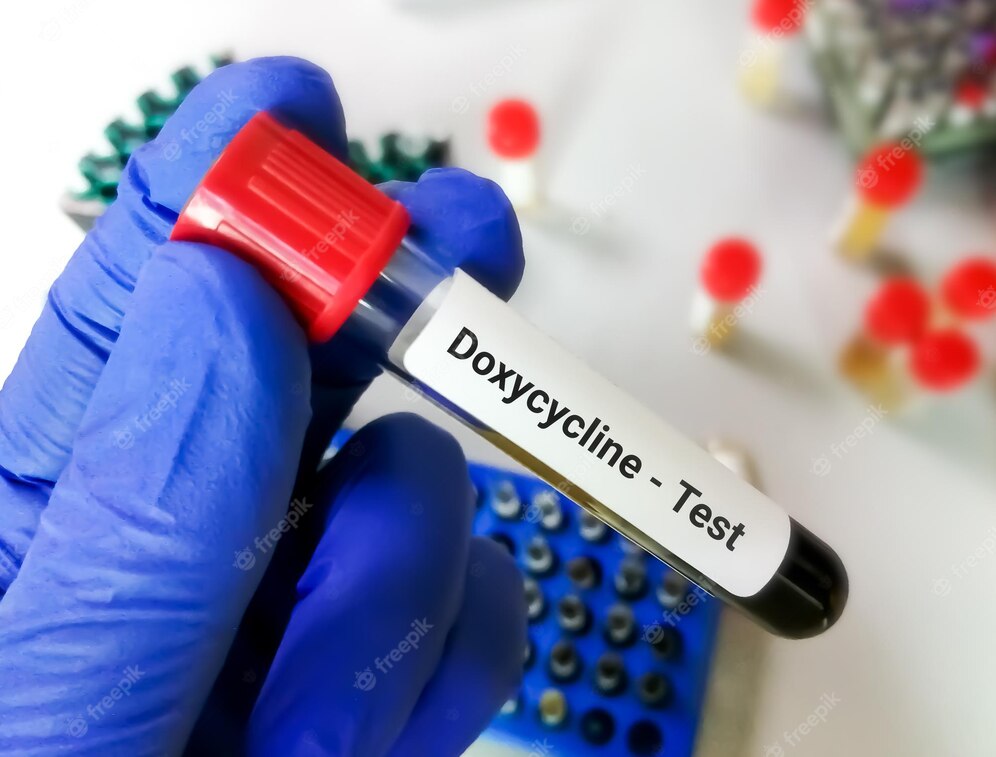Doxycycline for Acne : A Comprehensive Review of Its Benefits and Drawbacks

For those who have battled with acne, it can be a long and disheartening journey. From creams to pills, trying various treatments, hoping they are the answer that ends the battle once and for all. One such treatment is doxycycline: an antibiotic used as one of many options in treating skin conditions like acne. In this review, we will examine its merits - both positive and negative - compared to other available methods, so you can make an informed decision about your best course of action towards clear skin!
Introduction to Doxycycline for Acne
Doxycycline is a powerful, broad-spectrum antibiotic that has been gaining notoriety for its beneficial effects in treating acne. By targeting the bacteria responsible for outbreaks and helping to reduce inflammation, this versatile drug can help prevent future breakouts while clearing up existing spots. For optimal results, it may be combined with other medications including topical retinoids or benzoyl peroxide.
Understanding Acne and Its Causes
Exploring the role of doxycycline in treating acne requires a basic understanding of what causes this skin condition. From hormonal changes to heredity and even specific medications, various factors can lead to unsightly blemishes resulting from blocked hair follicles filled with oils and dead cells.
How Doxycycline Works for Acne

Doxycycline is a powerful antibiotic specifically designed to battle common skin bacteria linked to acne. Like other tetracyclines, it stops the production of proteins inside these nuisance microbes and keeps them from spreading any further. As an added bonus, its anti-inflammatory effects also help diminish redness around existing pimples while keeping new zits at bay!
Benefits of Doxycycline for Acne Treatment
Doxycycline has been established as an effective and affordable acne treatment option. Studies demonstrate that continual use of doxycycline can significantly reduce pimples, leading to healthier skin. It's conveniently available in both oral and topical forms via a prescription from either your dermatologist or general practitioner – making it highly accessible for any patient looking to control their breakouts!
Doxycycline is an incredibly versatile treatment option for acne sufferers. Not only does it have the efficacy to tackle a wide range of severities, from moderate to severe cases like vulgaris or conglobata; but can also be combined with other medications such as retinoids and benzoyl peroxide in order to target an even more effective response.
Drawbacks of Doxycycline for Acne Treatment
Despite doxycycline's potential to help manage acne, it should not be taken lightly. Overuse of the drug can lead to antibiotic resistance, making future treatments less successful. Likewise, long-term use may lead to various side effects, from digestive issues and yeast infections to photosensitivity disorders - making caution paramount when relying on antibiotics for skin care management.
Though doxycycline is a promising treatment for acne, it certainly isn't suitable for everyone. Those with liver or kidney issues and pregnant/breastfeeding women should steer clear of the medication due to potential interactions. Additionally, individuals taking particular medications, such as antacids and blood thinners, must be especially aware before starting doxycycline - speaking to your doctor about this risk beforehand is highly recommended.
Other Medications for Acne Treatment
Acne is a condition that affects millions of people, but its treatment can be complex. While doxycycline may provide an effective solution for some sufferers, there are alternatives to explore! From topical retinoids like tretinoin and adapalene—which work by increasing cell turnover and reducing inflammation—to benzoyl peroxide, which kills acne-causing bacteria while decreasing swelling; or even oral contraceptives used to regulate hormone levels linked with this skin disorder – tackling your ache could extend well beyond just one medication option.
How Long Does It Take for Doxycycline to Work for Acne?
Doxycycline is a popular acne treatment, but it requires patience and dedication to take hold of its effects. The extent of its success depends on the severity of your breakouts, as well as how you personally respond to this medication. However, significant improvement can be seen within several weeks if taken consistently according to the doctor's instructions.
Doxycycline Dosage for Acne Treatment
Doxycycline is a common course of treatment for acne, and the dosage can be fine-tuned to better suit individual cases. Generally speaking, it's recommended that 50-100mg daily doses are taken with food or water in order to prevent stomach issues. Your physician will assess your unique needs before determining an appropriate dose.
Precautions and Possible Side Effects of Doxycycline
With any medication, an informed decision is key. Before taking doxycycline to treat acne, make sure your doctor knows of any allergies or medical conditions that may be affected by the drug's side effects – which can include nausea, vomiting and diarrhea, as well as yeast infections and photosensitivity. If you start experiencing serious complications while on doxycycline, contact a physician immediately for proper care.
Conclusion
If you are considering doxycycline to treat your acne, it is essential to discuss the pros and cons of this medication with your doctor. Doxycycline can be an effective tool in combating bacteria-based acne due to its ability to reduce inflammation and inhibit new outbreaks. However, antibiotic resistance and common side effects should not be overlooked when deciding on a treatment plan. When administered appropriately, though, doxycycline may help achieve clear skin that's healthy for life.
If you are struggling with acne, consult with your doctor or dermatologist to determine the best treatment plan for your individual needs. Don't let acne hold you back from feeling confident and beautiful in your own skin.









